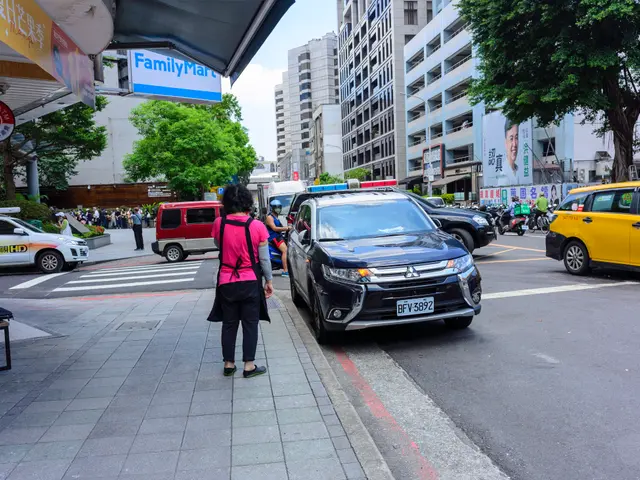Unhealthy practice: Self-medication is a regular aspect of daily life for 90% of Brazilians
Self-Medication: A Casual Habit with Potentially Serious Consequences
Hailing a warning to the nine out of ten Brazilians who practice self-medication—as per the Institute of Science, Technology and Quality (ICTQ)—ignorance could lead to severe health issues. This careless behavior, while common and seemingly harmless, can leave individuals at risk, particularly when it comes to using the wrong medication, inappropriate dosages, or dealing with dangerous drug interactions.
Professor Adriana Nascimento de Sousa, a Pharmacy teacher at Centro Universitário UniBH and a member of the Anima Ecosystem, stresses the importance of knowing the risks associated with self-medication. A person, for instance, might inadvertently take a medication that won't solve their problem, or they may start another medication without realizing it could have adverse reactions with the first one. In this case, the interaction between drugs can cause twofold problems: one, the medication used improperly may not produce the desired effect, and two, it can generate toxic effects on the body.
The consequences of these adverse reactions can be quite severe, including changes in the metabolism of drugs, sleepwalking, loss of consciousness, and, in extreme scenarios, even cardiac arrest. Another issue with self-medication is that sometimes consumers might either take too much medication, leading to overdoses, or too little, resulting in the drug being ineffective.
When it comes to popular anti-grip and analgesic medications, like dipyrone and paracetamol, they might seem innocuous, but consumers may not realize these drugs can cause adverse effects. Dipyrone, for instance, can often lead to a drop in blood pressure. In the case of paracetamol, it is extremely hepatotoxic, meaning high doses can potentially cause liver failure.
Given the challenges in combating self-medication today, with quick and affordable access to information via Artificial Intelligence, Google, and other channels, seeking a pharmacist's advice before using any medication remains crucial. A pharmacist is well-equipped to provide expert guidance, identify potential drug interactions, and ensure a safe and effective treatment plan. In fact, during the prescription process, they will analyze the patient's condition and other medications to recommend the best course of action.
It's essential to remember that self-medication comes with significant risks, but by seeking proper medical help and consulting a pharmacist, individuals can minimize their exposure to these hazards and ensure their health and wellbeing are prioritized.
MEDICATION POISONING SELF-MEDICATION
O TEMPO Home
** self-medication, medication, health risks, pharmacist, drugs, consulting, side effects, overdose, incorrect dosage, toxic effects**
Enrichment Data Insights:
- Overall: Self-medication represents a danger hiding in plain sight due to the various risks like misdiagnosis, harmful side effects, drug interactions, development of drug resistance, withdrawal and dependence issues, and legal consequences. Always consult a pharmacist before using any medication to ensure effective, safe, and legally compliant treatment.
- Risks and Consequences: Misuses, incorrect dosages, and drug interactions can lead to serious health complications. Additionally, drug misuse contributes to antibiotic resistance, withdrawal symptoms, and legal penalties. Self-medication may also encourage dangerous drug use and addiction risks.
- Importance of Consulting a Pharmacist: Pharmacists offer expert guidance on proper usage, identify potential drug interactions, and help with safe drug discontinuation. By preventing misuse, resistance development, and dispensing drugs legally and ethically, they protect patients from unregulated and counterfeit drugs.
- Unadvised self-medication can lead to harmful side effects and drug interactions, highlighting the importance of consulting a pharmacist before using any medication.
- In the realm of health-and-wellness, mental-health, and therapies-and-treatments, seeking guidance from a pharmacist can prevent serious issues like incorrect dosages and drug interactions.
- nutrition is essential for overall health, but improper self-medication can impact the body's metabolism, leading to potential toxic effects and adverse reactions.








